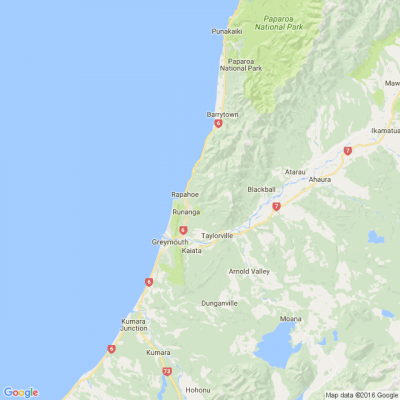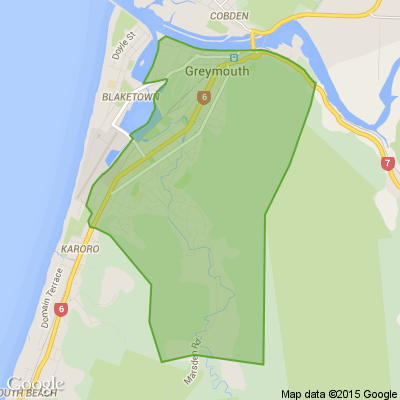Private Hokitika dump site used for asbestos
From local democracy reporter Brendon McMahon:
A site just north of Hokitika is being used to dispose of demolition material, including asbestos, from a fire damaged former Greymouth school, the West Coast Regional Council has confirmed.
The old Greymouth Intermediate School has been struck by two fires, the latest in June, with a 1960s brick classroom block and 1970s-era fibro-lite clad buildings either gutted or very badly damaged.
Hokitika contractor Henry Adams started demolition on Tuesday for the owners, Mawhera Incorporation.
After the regional council became aware demolition had started it visited the school site, given the risk of hazardous material and how it might be disposed of, council consents and compliance manager Colin Helem said.
The contractor had confirmed demolition material was being carted to their authorised disposal site near Hokitika.
"The site is authorised to receive material that may be contaminated with waste containing asbestos," Helem said.
Henry Adams had held a consent since 2017 to dispose of approved demolition material at a Keoghans Rd site, near Hau Hau Creek and just north of Hokitika.
The site had previously been mined by the contractor.
Helem said a council compliance officer visited that site and established the operation to dispose of demolition material there was compliant with the consent.
"It has been inspected and there is no issue there."
Helem noted the demolition was likely to be complex due to the fire damage masking the type of material in the structure, including the presence of asbestos.
It meant the contractor would wet down material as it was being removed, he said.
The former school site has appeared increasingly neglected since Greymouth High School sold its Karoro Learning Centre about 2015 to private provider Frontline.
Frontline closed and vacated the site in July 2017 and tenure of the old school then reverted to Mawhera as the landowner.
* Public interest journalism is funded by NZ on Air
Time to Tickle Your Thinker 🧠
If a zookeeper had 100 pairs of animals in her zoo, and two pairs of babies are born for each one of the original animals, then (sadly) 23 animals don’t survive, how many animals do you have left in total?
Do you think you know the answer? Simply 'Like' this post and we'll post the answer in the comments below at 2pm on the day!
Want to stop seeing these in your newsfeed? No worries! Simply head here and click once on the Following button.

Poll: As a customer, what do you think about automation?
The Press investigates the growing reliance on your unpaid labour.
Automation (or the “unpaid shift”) is often described as efficient ... but it tends to benefit employers more than consumers.
We want to know: What do you think about automation?
Are you for, or against?

-
9.5% For. Self-service is less frustrating and convenient.
-
43.4% I want to be able to choose.
-
47.1% Against. I want to deal with people.
Have you got New Zealand's best shed? Show us and win!
Once again, Resene and NZ Gardener are on the hunt for New Zealand’s best shed! Send in the photos and the stories behind your man caves, she sheds, clever upcycled spaces, potty potting sheds and colourful chicken coops. The Resene Shed of the Year 2026 winner receives $1000 Resene ColorShop voucher, a $908 large Vegepod Starter Pack and a one-year subscription to NZ Gardener. To enter, tell us in writing (no more than 500 words) why your garden shed is New Zealand’s best, and send up to five high-quality photos by email to mailbox@nzgardener.co.nz. Entries close February 23, 2026.









 Loading…
Loading…